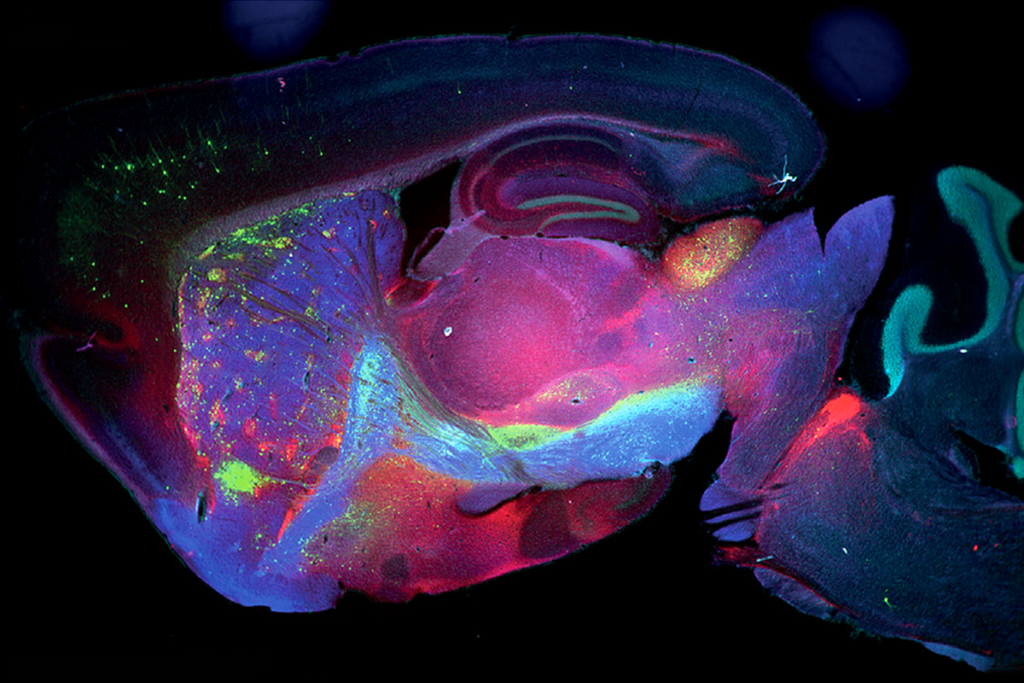Basal ganglia
Recent articles
Among brain changes studied in autism, spotlight shifts to subcortex
The striatum and thalamus are more likely than the cerebral cortex to express autism variants or bear transcriptional changes, two unpublished studies find.

Among brain changes studied in autism, spotlight shifts to subcortex
The striatum and thalamus are more likely than the cerebral cortex to express autism variants or bear transcriptional changes, two unpublished studies find.
David Robbe challenges conventional notions of time and memory
Inspired by his own behavioral neuroscience research and the philosophy of Henri Bergson, Robbe makes the case that we don't have clocks in our brains but instead perceive time by way of our interactions with the world.
David Robbe challenges conventional notions of time and memory
Inspired by his own behavioral neuroscience research and the philosophy of Henri Bergson, Robbe makes the case that we don't have clocks in our brains but instead perceive time by way of our interactions with the world.
Newly characterized striatal circuits add twist to ‘go/no-go’ model of movement control
The two novel pathways control dopamine release in opposing ways and may link motivation and mood to action, a new study shows.

Newly characterized striatal circuits add twist to ‘go/no-go’ model of movement control
The two novel pathways control dopamine release in opposing ways and may link motivation and mood to action, a new study shows.
Explore more from The Transmitter
Neuro’s ark: Spying on the secret sensory world of ticks
Carola Städele, a self-proclaimed “tick magnet,” studies the arachnids’ sensory neurobiology—in other words, how these tiny parasites zero in on their next meal.

Neuro’s ark: Spying on the secret sensory world of ticks
Carola Städele, a self-proclaimed “tick magnet,” studies the arachnids’ sensory neurobiology—in other words, how these tiny parasites zero in on their next meal.
Autism in old age, and more
Here is a roundup of autism-related news and research spotted around the web for the week of 2 March.

Autism in old age, and more
Here is a roundup of autism-related news and research spotted around the web for the week of 2 March.
Lack of reviewers threatens robustness of neuroscience literature
Simple math suggests that small groups of scientists can significantly bias peer review.

Lack of reviewers threatens robustness of neuroscience literature
Simple math suggests that small groups of scientists can significantly bias peer review.